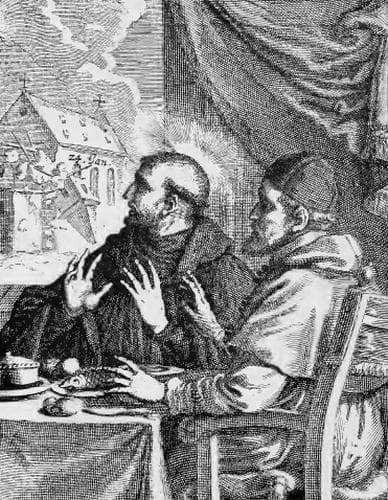
Blessed Macarius The Scot
Blessed
Feast Day: January 6
Death: January 1, 1823
Biography
Blessed Macarius The Scot, also known as Macarius of the Scots Monastery, Macarius of Würzburg, and Macario, was a Benedictine monk who lived in the 12th century. He was born in Ireland in the 11th century, although the exact date of his birth is unknown.
Macarius became the Prior of the Scots Monastery of Saint Jacob in Regensburg, Germany, around 1138. He was known for his piety, humility, and dedication to a simple ascetic life. During his time as Prior, he demonstrated exceptional devotion to God and performed numerous miracles, becoming renowned as a miracle worker.
In 1139, Macarius became the first abbot of the newly founded Scots Monastery of Saint Jakob in Würzburg, Germany. He played a significant role in establishing this monastery and also helped found a hospital there to aid and serve pilgrims. Macarius' charitable works and his efforts to support the sick and needy earned him widespread admiration and respect.
Throughout his life, Macarius remained devoted to the principles of his Benedictine order and led his fellow monks by example. He emphasized the importance of prayer, contemplation, and self-discipline, fostering a deep sense of spirituality within the monastic community. Macarius' commitment to a life of simplicity and devoutness made him a beloved figure among his fellow religious brethren as well as the local community.
After a life dedicated to serving God and the people, Macarius peacefully passed away in Würzburg in 1153 due to natural causes. His tomb was lost with the passage of time but was rediscovered in 1614. The following year, his relics were re-interred at the altar of the monastery church. However, the monastery was secularized in 1803, and in 1823, his relics were moved to the Lady Chapel at the market square of Würzburg.
Tragically, the chapel housing Macarius' relics was destroyed during World War II in 1945. Despite this setback, the memory and veneration of Blessed Macarius The Scot continue to this day. His exemplary life of faith and service to others led to his beatification in 1734 by Pope Clement XII, recognizing him as a blessed and worthy of honor within the Catholic Church.